BARBADOS
A Bill entitled
An Act to make provision for the prevention of corruption and the implementation of (a) the Inter-American Convention Against Corruption adopted on 29th March, 1996 in Caracas, Venezuela;
(b) Articles 8 and 9 of the United Nations Convention Against Transnational Organized Crime relating to Corruption adopted on 29th September, 2003 in New York; and
(c) the United Nations Convention Against Corruption adopted on 31st October, 2003 in New York, to which Barbados is a signatory and for related matters.
ENACTED by the Parliament of Barbados as follows:
Part I Preliminary
1. This Act may be cited as the Prevention of Corruption Act, 2010.
2. In this Act, “advantage” includes
(a) any commission, fee, gift, loan or reward consisting of money or of any valuable security or other property or interest in property of any description;
(b) any contract, employment or office;
(c) any discharge, liquidation, payment or release of any loan, obligation or other liability, whether in whole or in part;
(d) the exercise or forbearance from the exercise of any duty, power or right;
(e) any other favour or service, including protection from any disability or penalty apprehended or incurred from any action or proceedings of a civil, criminal or disciplinary nature, whether or not already instituted; and
(f)any offer, promise or undertaking, whether conditional or unconditional, of any advantage within the meaning of paragraph (a), (b), (c), (d) or (e);
“agent” has the meaning set out in section 12(4);
“assets” in relation to a person in public life means all property beneficially held by a person in public life whether in Barbados or elsewhere and all benefits and rights flowing from that property;
“child” includes a child of the family, a step-child and an adopted child;
“Commission” means the Prevention of Corruption Commission established by section 3;
“Convention” means
the Inter-American Convention Against Corruption adopted on March 29th, 1996 in Caracas, Venezuela;
Articles 8 and 9 of the United Nations Convention Against Transnational Organized Crime relating to Corruption adopted on 29th September, 2003 in New York; or
the United Nations Convention Against Corruption adopted on 31st October, 2003 in New York,
as the case may be, to which Barbados is a signatory and which is set out in Parts I, II and III of the Sixth Schedule;
“corruption” or “act of corruption” means any act which constitutes an offence under Part VI and includes the following:
any act or omission by a public official in the discharge of his duties, for the purpose of illicitly obtaining benefits for himself or for a third party;
participation as a principal, co-principal, instigator, accomplice or accessory after the fact, or in any other manner, in the commission or attempted commission of, or in any collaboration or conspiracy to commit any of the acts referred to in this definition;
the fraudulent use or concealment of property derived from any of the acts referred to in this definition;
the offering or granting, directly or indirectly, to a public official of any article of monetary value, or other benefit, such as a gift, favour, promise or advantage for himself or for another person or entity, in exchange for any act or omission in the performance of his public functions;
(e) the solicitation or acceptance, directly or indirectly, by a public official of any article of monetary value, or other benefit, such as a gift, favour, promise or advantage for himself or for another person or entity, in exchange for an act or omission in the performance of his public functions;
“foreign public official” means any person who exercises a public function for a foreign country including a public function for a public agency or public enterprise of a foreign country; or
(b) holds an administrative, executive, judicial or legislative office of a foreign country whether appointed or elected;
“freezing” means temporarily restraining or assuming control or custody of property; or prohibiting the conversion, disposition, movement or transfer of property, on the basis of a court order;
“income” in relation to a person in public life means all income from whatever source derived, acquired by the person in or out of Barbados and includes all benefits and prerequisites whether acquired directly or indirectly and includes, as money or money’s worth, all receipts by way of salary, fees, wages, profits, gains, emoluments, rents, interest, commissions, bonus, pension, annuity or benefit and any other income within the meaning of the Income Tax Act;
“liability” in relation to a person in public life includes any obligation of the person to pay or transfer money or money’s worth to others in Barbados or elsewhere;
“member” means a member of the Commission;
“Minister” means the Minister with responsibility for legal affairs;
“official of a public international organization” means a person who is authorized by an international organization to act on its behalf;
“person in public life” means any public official whose office is specified in the Second Schedule;
“private sector entity” means an entity that is not a public body and is not under the direct control of the Government;
“property” means assets of any kind, whether corporeal or incorporeal, movable or immovable, tangible or intangible and any legal document or instrument establishing or purporting to establish title to or interest in those assets;
“public body” means
a corporation established by an Act of Parliament for a public purpose or a company or a subsidiary of a company registered under the Companies Act in respect of which the Government or an agency of Government holds shares or has the type of financial input that influences the policy of the company;
(b) the Cabinet, a Ministry or a Department of Government;
(c) any authority, board, commission, committee or other similar body appointed by the Governor-General or a Minister of Government pursuant to an enactment;
(d) the Government; or
(e) the House of Assembly and the Senate;
“public official” means any person who holds a legislative, executive, administrative or judicial office in the Government of Barbados whether appointed or elected, whether permanent or temporary, whether paid or unpaid;
any person who performs a public function or provides a public service including a public function or public service for a public body, public agency, public enterprise or public institution;
a person in public life;
“spouse” includes a party to a union other than marriage within the meaning of section 39 of the Family Law Act;
“stateless person” means a person who does not enjoy the rights and privileges of being a citizen of any State due to the revocation of his citizenship through lawful means;
“tribunal” means the persons appointed by the Governor-General under paragraph 5(3) of the First Schedule.
PART II Prevention of Corruption Commission
3. (1) There is hereby established for the purposes of this Act a body to be known as the Prevention of Corruption Commission.
(2) Subject to subsection (3) the provisions of the First Schedule shall have effect as to the constitution of the Commission and otherwise in relation thereto.
(3) The Governor-General shall pursuant to paragraph 1 of the First Schedule and in the manner described in that Schedule,
(a) appoint the members of the Commission; and
(b) remove any member of the Commission for the reasons and in the manner set out in paragraph 5 of that Schedule.
(4) Where, pursuant to paragraph (b) of subsection (3) and paragraph 5(2) of the First Schedule the Governor-General determines that a tribunal ought to be appointed to consider the question of the removal of a member, he shall do so in the manner set out in paragraph 5(3) of that Schedule.
(5) The proceedings of the tribunal shall be conducted in the manner set out in the First Schedule.
4. (1) The Commission shall
(a) receive and keep on record all declarations and documents furnished pursuant to this Act;
(b) request from a person any information relevant to a declaration made pursuant to this Act which, in the opinion of the Commission, will assist in the examination and verification of the declaration;
(c) without prejudice to the provisions of any other enactment, make independent enquiries and carry out investigations into any allegations of corruption or any act or omission relevant to compliance with the provisions of this Act;
(d) make any enquiry it considers necessary in order to determine or verify the accuracy of any declaration or document before it; and
(e) receive and investigate complaints in respect of non- compliance with any provision of this Act.
(2) Notwithstanding subsection (1), the Commission shall perform any other function which it considers necessary for the purpose of carrying out its functions under this Act.
(3) The Commission shall make recommendations to the appropriate authority in respect of any conduct which is prohibited under this Act.
(4) Where the recommendations of the Commission made pursuant to subsection (3) are not implemented, the Commission shall forward the recommendations to the Office of the Director of Public Prosecutions.
(5) The Commission may, where it deems necessary, allow for the exchange of information with other domestic and foreign bodies involved in anti-corruption functions.
(6) Where a public official or a person on his behalf, is suspected of being in possession of property disproportionate to his legitimate source of income, the Commission may conduct an enquiry into the acquisition of that property.
5. The Commission shall retain all documents and declarations filed before it for at least 10 years from the date of filing.
6. (1) The Commission shall appoint from among persons who are not public officials or who are no longer public officials adequate staff for the performance of its functions.
(2) The Commission shall, subject to the approval of the Minister of Finance, determine the remuneration and other terms and conditions in relation to the employees of the Commission.
7. In the performance of its functions the Commission shall not be subject to the direction or control of any authority or person.
8. The Commission shall, on or before the 31st day of October every year, submit to the Minister its estimate of expenditure for the next financial year.
9. The Commission shall keep proper accounts of all assets, liabilities, payments and receipts and those accounts shall be audited by the Auditor-General.
10. The Commission shall, in pursuance of its functions, have the power to
(a) compel the production of statements, information or specified documents; and
(b) summon, enforce the attendance of and examine witnesses on oath or affirmation.
11. (1) The Commission shall, not later than 2 months after the end of each financial year, submit to the Minister a report of its activities during the preceding year.
(2) A report filed under subsection (1) shall not disclose the particulars of any declaration filed with the Commission.
(3) The Minister shall table the report in the Parliament not later than 2 months from the date of receipt of the report from the Commission.
(4) In the event that the Minister fails to table the report within the time specified in subsection (3), LAWS the Minister shall notify the Speak of the House in writing at his reasons for the failure to do so and specify the sitting of the Parliament at which the report will be tabled.
Part III Financial Disclosure
12. (1) Subject to subsection (2), every person in public life shall file with the Commission, a declaration setting out
(a) his assets, income and liabilities;
(b) his office or offices;
(c) the assets of his spouse and children who are under the age of 18 years and are not married; and
(d) any gift or series of gifts in value exceeding $500 given to him, directly or indirectly, by a person who is not a member of his family or household or a relative.
(2) Where a person referred to in subsection (1) is also a member of the Commission, that person shall file the declaration referred to in subsection (1), with the Governor-General.
(3) For the purpose of the declaration referred to in subsection (1), the assets, income and liabilities of a person required to file the declaration pursuant to that subsection shall include the assets held, income earned and liabilities incurred by any other person as his agent or on his behalf.
(4) A person is an agent and another his principal for whom that person performs functions where
(a) both persons are partners in the same partnership;
(b) the first mentioned person is a trustee and the other is a beneficiary under the same trust; or
(c) there is an agreement or understanding between both persons either expressed or implied that the first mentioned person is to perform the function for the other person.
(5) It is immaterial if
(a) the affairs or business of the principal or the functions of the principal have no connection with Barbados; or
(b) the functions of the agent have no connection with Barbados.
(6) Where a person in public life holds money or property in trust for another person, that fact shall be stated in the declaration of that person.
(7) Notwithstanding subsection (1), where
(a) the spouse of a declarant was not ordinarily living with the declarant for a continuous period of 6 months; or
(b) a child of a declarant was not ordinarily living with the declarant at any time,
during the period in respect of which the declaration is required to be made, the particulars required to be furnished by the declarant shall be limited to assets held by the spouse or child in trust for, or as agent of, the declarant.
(8) Nothing in subsection (7) shall be construed as precluding the Commission or the person appointed under section 14(3), as the case may be, from requiring from a declarant in accordance with this Act, any additional particulars.
(9) A person referred to in subsection (1) who
(a) fails to file a declaration or provide information in accordance with this section; or
(b) knowingly makes a declaration which is false in some material particular, is guilty of an offence and is liable on conviction on indictment to a fine of $500 000 or to imprisonment for a term of 5 years or to both.
13. (1) A person in public life who is a member of Parliament shall also state in his declaration under section 12, the place where the that person was employed during the period of 15 years prior to the filing of the declaration.
(2) A member of Parliament who
(a) fails to file a declaration or provide information in accordance with this section; or
(b) knowingly makes a declaration which is false in some material particular, is guilty of an offence and is liable on conviction on indictment to a fine of $500 000 or to imprisonment for a term of 5 years or to both.
14. (1) The declaration referred to in sections 12 and 13 shall be submitted in the form set out in the Third Schedule.
(2) The Commission or, a person appointed pursuant to subsection (3), as the case may be, shall examine every declaration received and may request from a declarant any information, document or explanation required in respect of the declaration in order to verify the accuracy of the declaration.
(3) The Governor-General may, after consultation with the Prime Minister and the Leader of the Opposition, appoint from among persons who are not or are no longer public officials
(a) a former judge;
(b) an attorney-at-law of at least 15 years’ standing; or
(c) a person with at least 15 years’ experience in financial or accounting matters,
to perform the function set out in subsection (2) in relation to declarations received by the Governor-General.
(4) A person appointed under subsection (3)
(a) shall
(i) receive such remuneration as the Governor-General determines after consultation with the Minister of Finance; and
(ii) after performing the function set out in subsection (2), submit a report of his findings to the Governor-General and to the declarant, if the declarant so requests; and
(b) may, in the report, make such recommendations as the circumstances may require, including a recommendation that the matter be referred to a tribunal.
15. (1) Every person who,
(a) on the date of the commencement of this Act, is a person in public life, shall file a declaration within 3 months after that date; or
(b) after the date of the commencement of this Act, becomes a person in public life, shall file a declaration within 6 months after the date on which he becomes a person in public life.
(2) Any person who fails to file a declaration in accordance with subsection (1) is guilty of an offence and is liable on conviction on indictment to a fine of $500 000 or to imprisonment for a term of 5 years or to both.
16. (1) Every person in public life shall file the declaration referred to in section 12 not later than 3 months after the end of each year.
(2) A person who ceases to be a person in public life shall file a declaration in respect of the year in which he ceases to be a person in public life.
17. (1) The secretary of a political party which contests a general election shall, on behalf of that political party, file a declaration stating the name and address of every financial contributor to the political party.
(2) The declaration shall be in respect of all contributions made within 2 years prior to and 6 months after the general election.
(3) A political leader, president or chairman or secretary of any political party referred to in subsection (1), who fails to ensure that a declaration is filed in accordance with subsections (1) and (2), is guilty of an offence and is liable on conviction on indictment to a fine of $500 000 or to imprisonment for a term of 5 years or to both.
(4) Notwithstanding subsection (3), it is a defence to a charge brought under that subsection that the person charged did all in his power to enable the secretary to comply with subsections (1) and (2).
18. (1) A person in public life whose assets are in a blind trust shall, in respect of those assets, state in his declaration the amount and description of those assets and the date the trust was created.
(2) For the purposes of this section a blind trust is created where a person in public life enters into an agreement with a qualified trust company in which provision is made
(a) for all or part of his assets to be conveyed to the trust for its administration, control and management in its absolute discretion without recourse or reporting to the persons
beneficially entitled to those assets;
(b) after he ceases to be a person in public life, for full and proper accounting to be made to him regarding the management of the trust; and
(c) for conversion of the assets into other assets not to be communicated to him until he ceases to be a person in public life.
(3) A trust company is a “qualified trust company” where
(a) no more than 10 per cent of the issued shares in the trust company or any of its affiliates is held by the person in public life entering into an agreement with it or by an associate; and
(b) the person in public life holds no directorship or office in the trust company or any of its affiliates.
(4) For the purposes of this section, “associate” means
(a) a company or body corporate of which the settlor or any person specified in paragraph (b), (c), (d), (e) or (f) owns or controls, directly or indirectly, shares or debentures convertible into shares, that carry more than 20 per cent of the voting rights
(i) under all circumstances;
(ii) by reason of the occurrence of an event that has occurred and is continuing; or
(iii) by reason of currently exercising the option or right to purchase those shares or those convertible debentures;
(b) a partner of that person acting on behalf of the partnership of which they are partners;
(c) a trust or estate in which that person has a substantial beneficial interest or in respect of which he serves as a trustee or in a similar capacity;
(d) a spouse;
(e) a child; or
(f) a relative of that person or of his spouse if that relative has the same residence as that person.
(5) For the purposes of this section,
(a) a company is an affiliate of another company where one of them is the subsidiary of the other or both are subsidiaries of the same body corporate, or each of them is controlled by the same person; and
(b) where 2 bodies corporate are affiliated with the same body corporate at the same time, they are affiliated with each other.
(6) For the purpose of subsection (4), “control” shall be construed within the meaning of section 441 of the Companies Act.
(7) A person in public life who fails to comply with subsection (1) is guilty of an offence and is liable on conviction on indictment to a fine of $500 000 or to imprisonment for a term of 5 years or to both.
19. All declarations filed with and records kept by the Commission pursuant to the provisions of this Act are secret and confidential and shall not be made public, except where a particular declaration or record is required to be produced for the purpose of
(a) an enquiry in respect of a declarant under this Act;
(b) an enquiry under the Commissions of Inquiry Act; or
(c) court proceedings in relation to a breach of this Act.
20. (1) Any member, person performing any function on behalf of the Commission, any person appointed under section 14(3) and any tribunal shall
(a) treat all declarations, information and records relating thereto as secret and confidential;
(b) not communicate or disclose to any unauthorized person the contents of any declaration or any information or records relating thereto; and
(c) not allow any unauthorized person to have access to any declaration or information and records relating thereto.
(2) A person who fails to comply with subsection (1) is guilty of an offence and is liable on conviction on indictment to a fine of $500 000 or to imprisonment for a term of 5 years or to both.
(3) An unauthorized person who publishes information which comes to his knowledge under subsection (1) is guilty of an offence and is liable on conviction on indictment to a fine of $500 000 or to imprisonment for a term of 5 years or to both.
(4) In this section, an “unauthorized person” is a person who is not authorized to receive information concerning the financial affairs of persons in public life
(a) by a court order;
(b) under this Act; or
(c) under any other law.
21. (1) Where the Commission considers it expedient or necessary to enquire into the accuracy or completeness of any declaration, the Commission shall appoint a Committee comprising of 3 members to verify the contents of that declaration.
(2) An enquiry shall not be commenced in respect of any declaration after 8 years from the date when the declaration was filed.
(3) Where the Commission has reasonable cause to believe that a breach of any of the provisions of this Act may amount to a criminal offence, it shall refer the matter to the Director of Public Prosecutions.
(4) The Committee shall submit a written report of its findings to the Commission and to the declarant if the declarant so requests.
(5) For the purpose of any enquiry under this section, the Commission may request in writing that the declarant or any other person whom it reasonably believes has relevant information, to
(a) appear before the Commission to give evidence; and
(b) furnish all documents in his possession which would facilitate the enquiry.
(6) A person who
(a) fails without reasonable excuse
(i) to attend an enquiry of the Commission or a Committee appointed under subsection (1); or
(ii) to comply with the instructions of the Commission pursuant to subsection (5)(b) or section 10(a), is guilty of an offence and is liable on summary conviction to a fine of $100 000 or to imprisonment for a term of 5 years or to both; or
(b) gives false information at an enquiry is guilty of an offence and is liable on conviction on indictment to a fine of $500 000 or to imprisonment for a term of 4 years or to both.
(7) A tribunal shall, where it is necessary to verify the contents of a declaration of a Commissioner pursuant to an enquiry under paragraph 5(4) of the First Schedule, have in respect of that enquiry, the powers set out in subsection (5) and section 10, and subsections (2), (3), (4) and (6) shall apply with such modifications and adaptations as may be required in respect of that enquiry.
22. For the purpose of the Income Tax Act, all expenses incurred by a declarant in order to comply with this Act are deemed to be necessarily incurred by him during the year of assessment to which the declaration relates.
23. Where after an enquiry under section 21 a Committee or a tribunal finds that a declarant made full disclosure in his declaration, the declarant shall be reimbursed by the Commission for all expenses reasonably incurred due to his attendance before the Committee or the tribunal.
Part IV Code of Conduct
24. Notwithstanding the provisions of the Second Schedule to the Public Service Act, every public official shall observe and comply with the Code of Conduct set out in the Fourth Schedule.
25. (1) A person who has reasonable grounds to believe that a public official has breached any provision of the Code of Conduct referred to in section 24, may make a written complaint to the Commission specifying
(a) the name and position of the public official;
(b) the nature of the perceived breach;
(c) the relevant details; and
(d) any other particulars prescribed in Regulations made by the Minister pursuant to section 69.
(2) The Commission shall notify in writing the person against whom a complaint has been made of the allegations made against that person.
26. (1) The Commission shall reject any complaint made under this Act where, after reviewing the complaint, the Commission finds that the complaint
(a) does not pertain to a matter over which the Commission has jurisdiction; or
(b) is frivolous or vexatious.
(2) The Commission shall, before making a decision that a complaint is frivolous or vexatious, give the complainant an opportunity to be heard.
27. (1) Where the Commission is of the opinion that an investigation is necessary to ascertain whether a public official has breached any provision of the Code of Conduct, the Commission shall enquire into the matter.
(2) The sittings of the Commission to hear arguments or take evidence in the course of any enquiry under subsection (1), section 4(6), section 21 or section 56 shall be held in private.
(3) The parties to any enquiry under this Act
(a) are entitled to
(i) the particulars of the alleged breach;
(ii) the right to be heard;
(iii) notice of the proceedings; and
(b) shall be informed by the Commission of their right to be represented by an attorney-at-law.
(4) The Commission shall, at the commencement of a sitting to hear arguments or take evidence in an enquiry under this section, inform the person appearing of his right to be represented by an attorney-at-law.
(5) This section and section 28 shall apply, with such modifications and adaptations as may be required, in respect of an enquiry by a tribunal.
28. (1) On the conclusion of any enquiry under section 27, the Commission shall submit a report on the enquiry to the Governor-General.
(2) Notwithstanding subsection (1), where the Commission has reason to believe that the evidence before it may constitute a criminal offence, it shall forward a copy of its findings to the Director of Public Prosecutions.
Part V Private Sector
29. (1) Any private sector entity that fails to comply with the relevant law in order to obtain a concession, exemption or licence and so as to improperly gain an advantage in respect of the commercial activities of the entity, is guilty of an offence and is liable on conviction on indictment to a fine of $500 000 or to imprisonment for a term of 5 years or to both.
(2) A person who directs or works in any capacity for a private sector entity and who accepts or solicits directly or indirectly an advantage for himself or another person or entity in order that the person or entity acts or refrains from acting in the exercise of duties is guilty of an offence and is liable on conviction on indictment to a fine of $500 000 or to imprisonment for a term of 5 years or to both.
30. A person who directs or works in any capacity for a private sector entity and who, for his benefit or for the benefit of another person or entity, embezzles, misappropriates or otherwise diverts any property entrusted to him in the course of economic, commercial or financial activities by virtue of his position, is guilty of an offence and is liable on conviction on indictment to a fine of $500 000 or to imprisonment for a term of 5 years or to both.
31. (1) A private sector entity shall comply with general accounting and auditing principles and, without limiting the generality of the foregoing, shall not in relation to that entity,
(a) enter liabilities with incorrect identification of their objects;
(b) establish off-the-book accounts;
(c) conduct off-the-book or inadequately identified transactions;
(d) record non-existent expenditure; or
(e) use false documents.
(2) A general manager or any person responsible for the preparation of the accounts of a private sector enity who fails to comply with the provisions of subsection (1) is guilty of an offence and is liable on conviction on indictment to a fine of $500 000 or to imprisonment for a term of 5 years or to both.
Part VI Solicitation, Bribery and Other Offences
32. For the purposes of this Part, Part V and the Fourth Schedule a person
(a) accepts an advantage where he or any person acting on his behalf, directly or indirectly
(i) agrees to obtain, receive or take; or
(ii) obtains, receives or takes,
any advantage whether for himself or any other person;
(b) offers an advantage where he or any person acting on his behalf, directly or indirectly
(i) agrees to give; or
(ii) gives or holds out,
any advantage to or in trust for any other person; and
(c) solicits an advantage where he or any person acting on his behalf, directly or indirectly
(i) asks for, demands or invites; or
(ii) indicates a willingness to receive, any advantage whether for himself or any other person.
33. (1) A person who, without lawful authority, promises, offers or gives any advantage to a public official as an inducement or reward for himself or another person or entity in order that the public official
(a) abstain from performing or perform any act in his official capacity;
(b) assist, hinder or delay any other person in the transaction of any business with a public body; or
(c) hinder, expedite or prevent the performance of any act whether by himself or through another public official,
is guilty of an offence and is liable on conviction on indictment to a fine of $500 000 or to imprisonment for a term of 5 years or to both.
(2) A public official who, without lawful authority, accepts or solicits any advantage for himself or another person or en



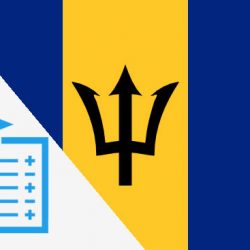
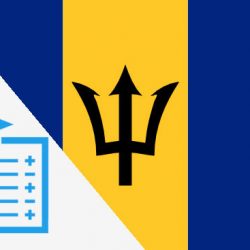
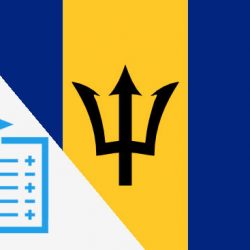
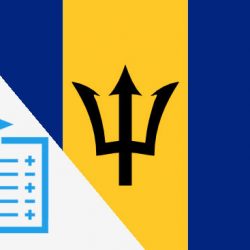
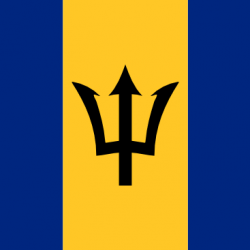
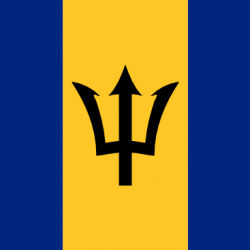
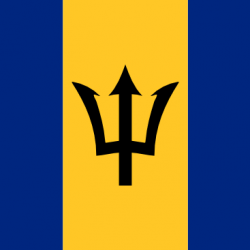
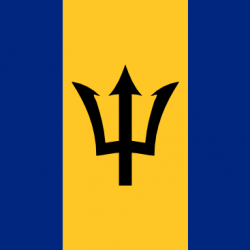
 We will not leak your personal information
We will not leak your personal information